In taking professional development and digging into research to support my clients. I found ways to improve my own health and wellness. This journey has changed how I approach speech therapy for the better!
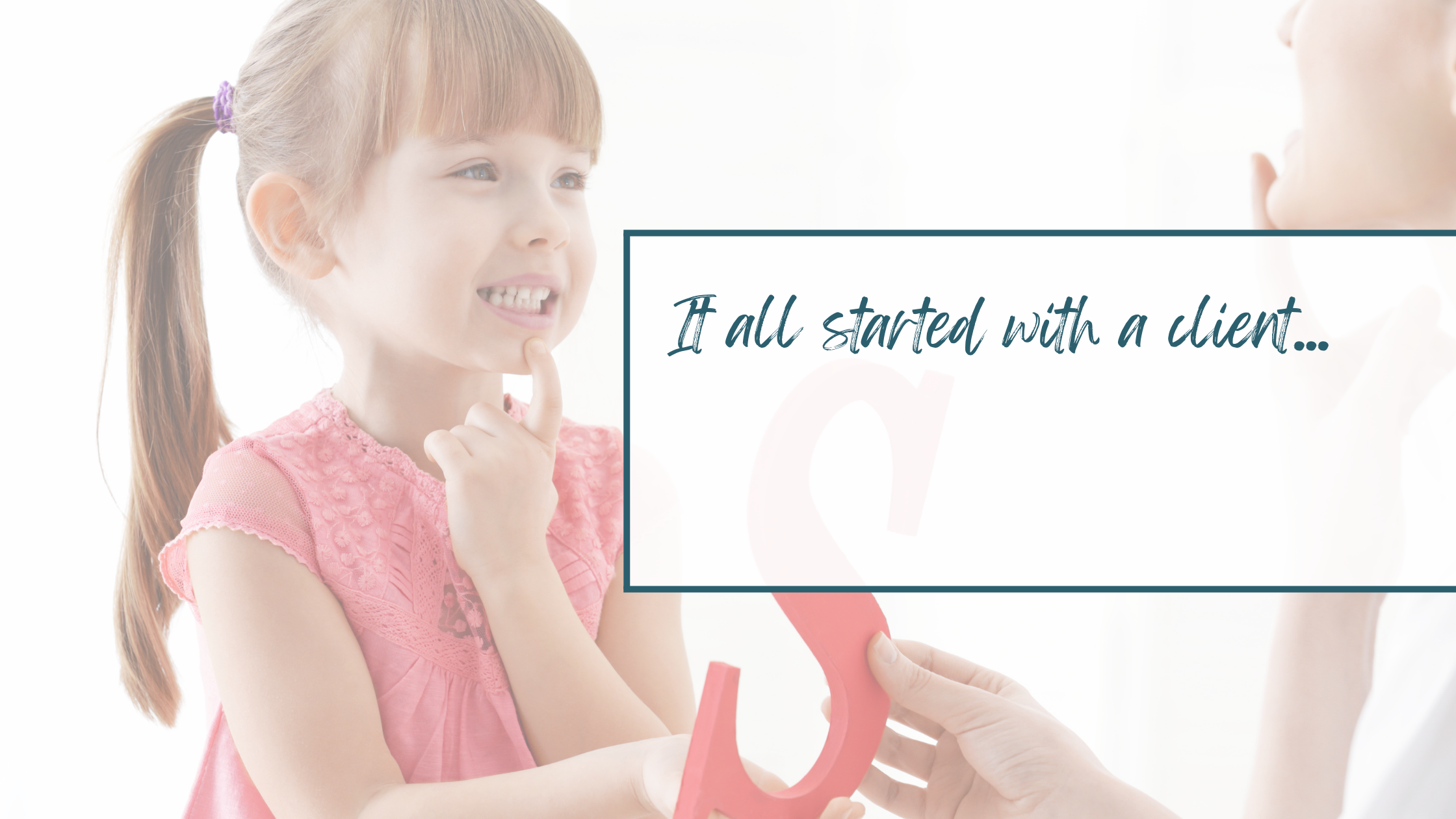
As a new graduate, I embarked on a journey fueled by curiosity and determination. I intentionally chose to work in a variety of settings, not only to maximize my exposure to the field of speech-language pathology but also to cultivate a diverse skill set. In my second year, I took on three distinct roles: school-based therapist, home health, and inpatient rehabilitation.
It was a transformative moment when I started to notice a pattern among some of my school-aged clients with speech sound disorders. They seemed to share common traits, such as oral breathing patterns and orthodontic differences, with many parents expressing concerns about selective or inefficient eating, allergies, sleep issues, and more. I was lucky to have amazing mentors, so I invited Carol to consult on a specific case. Her swift identification of tongue posture as the primary concern was a revelation. It was a muscular/structural problem that traditional techniques alone couldn't address.
I brought in my dysphagia (swallowing and oral processing) skills and honesty; the rest is history. We took a quick step back from speech sound development and worked on oral postures, chewing, and swallowing. When we resumed speech, these children flew through therapy!
My graduate program was both long and intensive, focusing on severe disorders and differences. While this topic was mentioned in school as we learned how to complete comprehensive oral exams, I needed to investigate it further. I started reading every article and taking every course I could find.
It was clear that many of the research-backed techniques I used to support my home health and rehab clients would also benefit my other clients.

As I dug into the research, I couldn't help but see myself.
While I didn't have a speech sound disorder as a child, my severe allergies forced me to breathe through my mouth, and I sucked my thumb for years. As a teen, my orthodontist could not figure out why it took longer than usual and why my bite relapsed so quickly after my braces were removed. No one had asked about my oral postures.
I had thought that I was an unlucky person; I had so many tiny health issues (reflux, thyroid, fertility, posture, immune, anxiety) that each on its own was not a big concern (and was, therefore, ignored by my primary care provider). However, in reading research, I discovered that each was somehow related to Ehlers-Danlos syndrome and sleep-disordered breathing.
My sleep was awful: It would take me hours to fall asleep, I would awaken at the smallest noise, and I would wake unrested, no matter how many hours of sleep I had the night before.
The research made it clear that I needed to see a sleep specialist and aggressively treat my allergies.
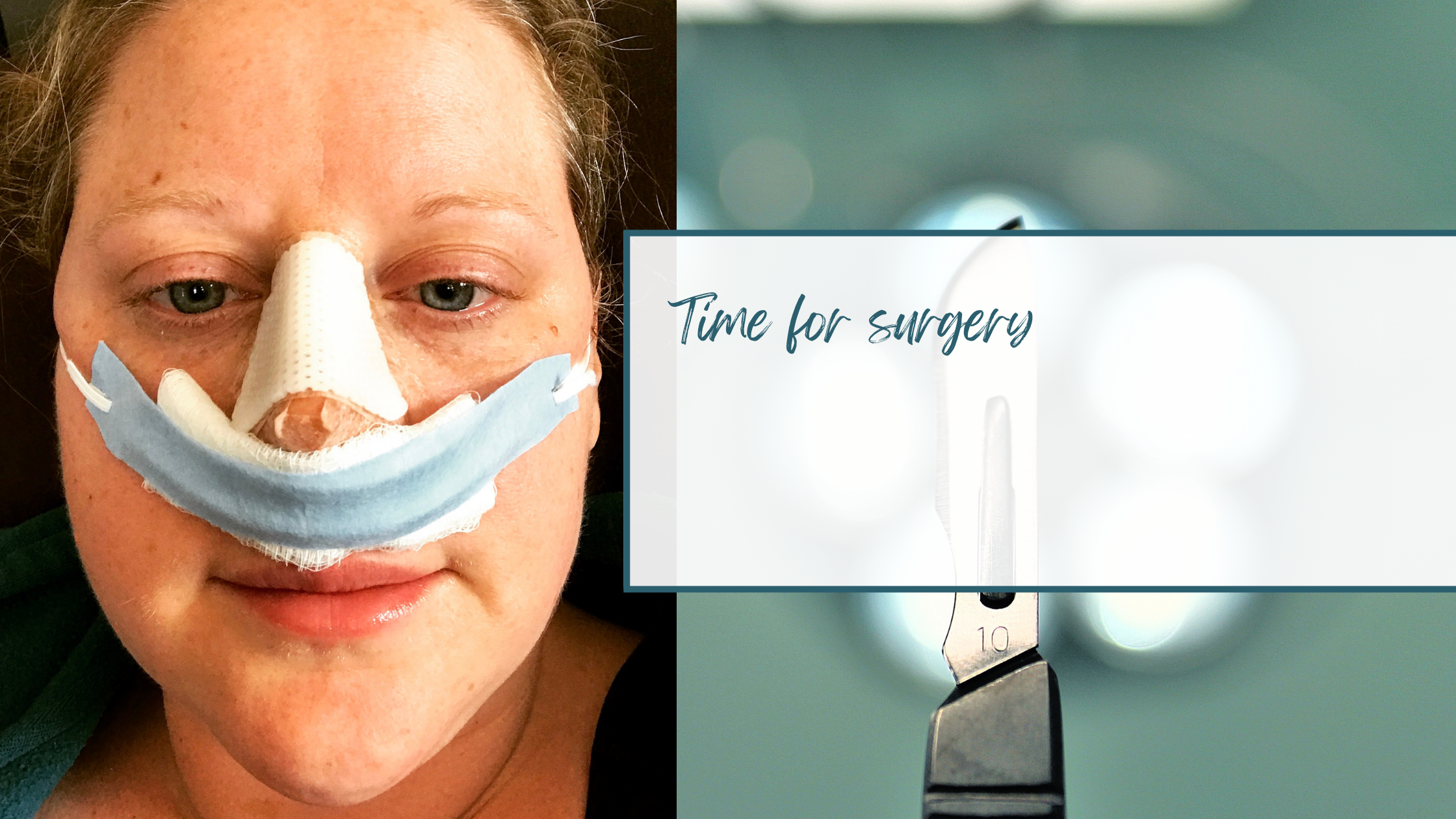
While I had many allergy tests before, I specifically contacted an allergist familiar with sleep-breathing issues. She quickly identified that while I had multiple environmental allergies, she was the first provider to notice I had a deviated nasal septum. She recommended a surgical consult before proceeding with allergy shots.
The surgeon was excellent! He quickly identified a difference in my cartilage. He suspected if I proceeded with the typical surgery, it would fail within a few years. He recommended an addition to the procedure to reduce the collapsibility of my nasal airway. Sadly, because it wasn't the traditional approach, my insurance refused to pay for any part of the procedure. I took out a loan and have yet to look back.
Honestly, my life is divided into before and after septoplasty. After surgery, I could finally breathe through my nose for more than a few seconds. I would fall asleep within 15 minutes, sleep through the night, and wake rested after 8 to 9 hours. It was life-changing! While still present, my mental health improved dramatically, and other conditions were much easier to control and stable.
I was then able to dig in! I continue to work hard to ensure I have ideal nasal breathing and focus on improving my tongue posture.
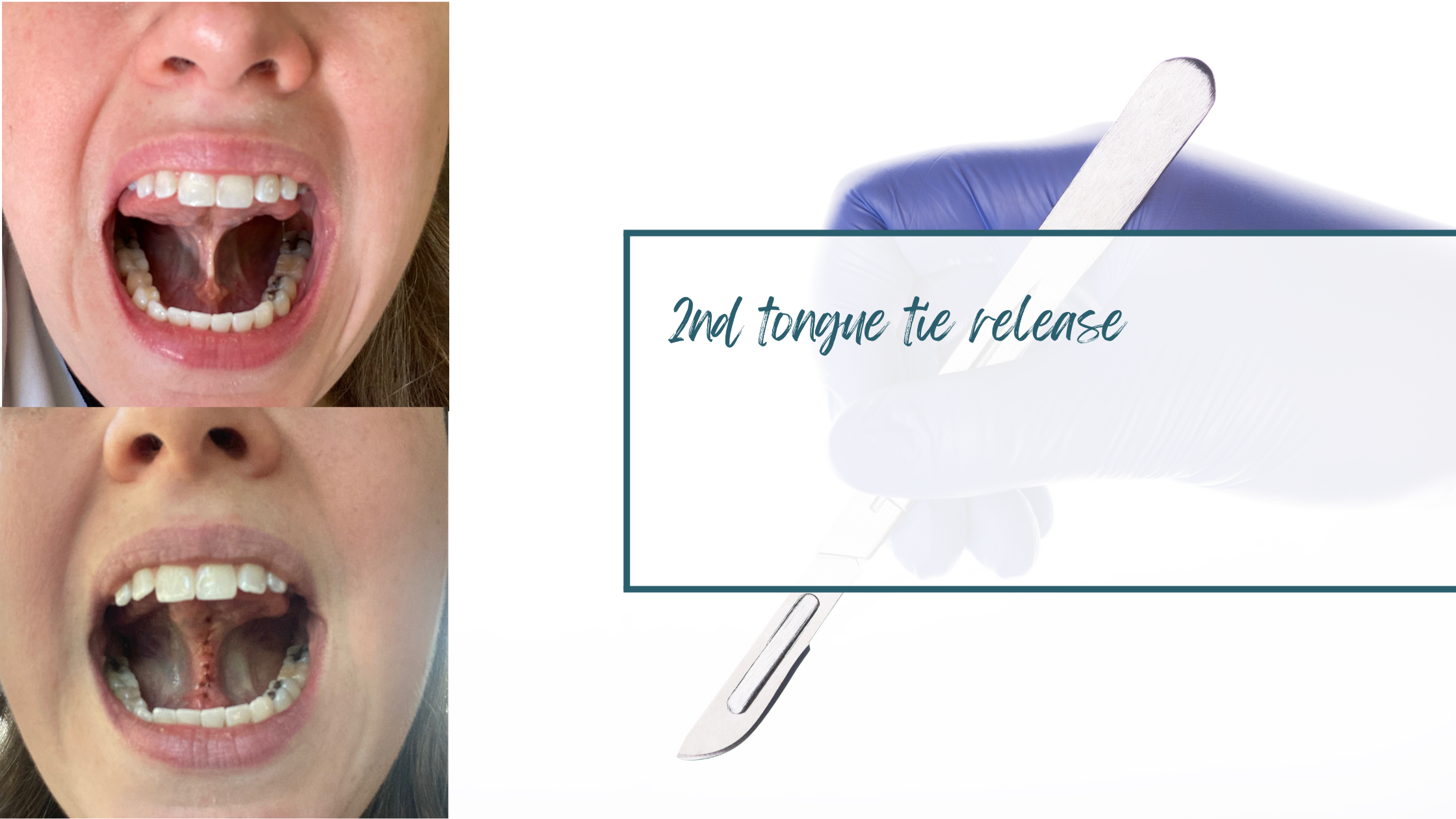
As a speech pathologist, I noticed early in my journey that I had a mild tongue tie, but it did not significantly impact my speech or prevent me from achieving an ideal tongue posture. However, I did appreciate that ideal tongue posture was only achievable with conscious awareness. I was constantly needing to pull my tongue back away from my teeth.
However, as I often work with clients who require a tongue-tie release, I wanted to understand the healing journey firsthand. I underwent a tongue tie release during my septoplasty. He was less experienced at tongue-tie surgeries (aka frenectomy or frenuloplasty), and so despite diligent aftercare, I had significant scarring. Despite a less-than-ideal release, I noticed a considerable improvement. I still had concerns, but it was much better than before.
A few years later, I had a surgeon who sees many of my clients complete a revision. Now, my tongue posture is perfect! You can clearly see in the before-and-after photos that my tongue is positioned forward in my mouth in the before photo (note the white scar tissue), and immediately, my tongue is back in its normal position after surgery, away from the teeth. It was worth every penny!
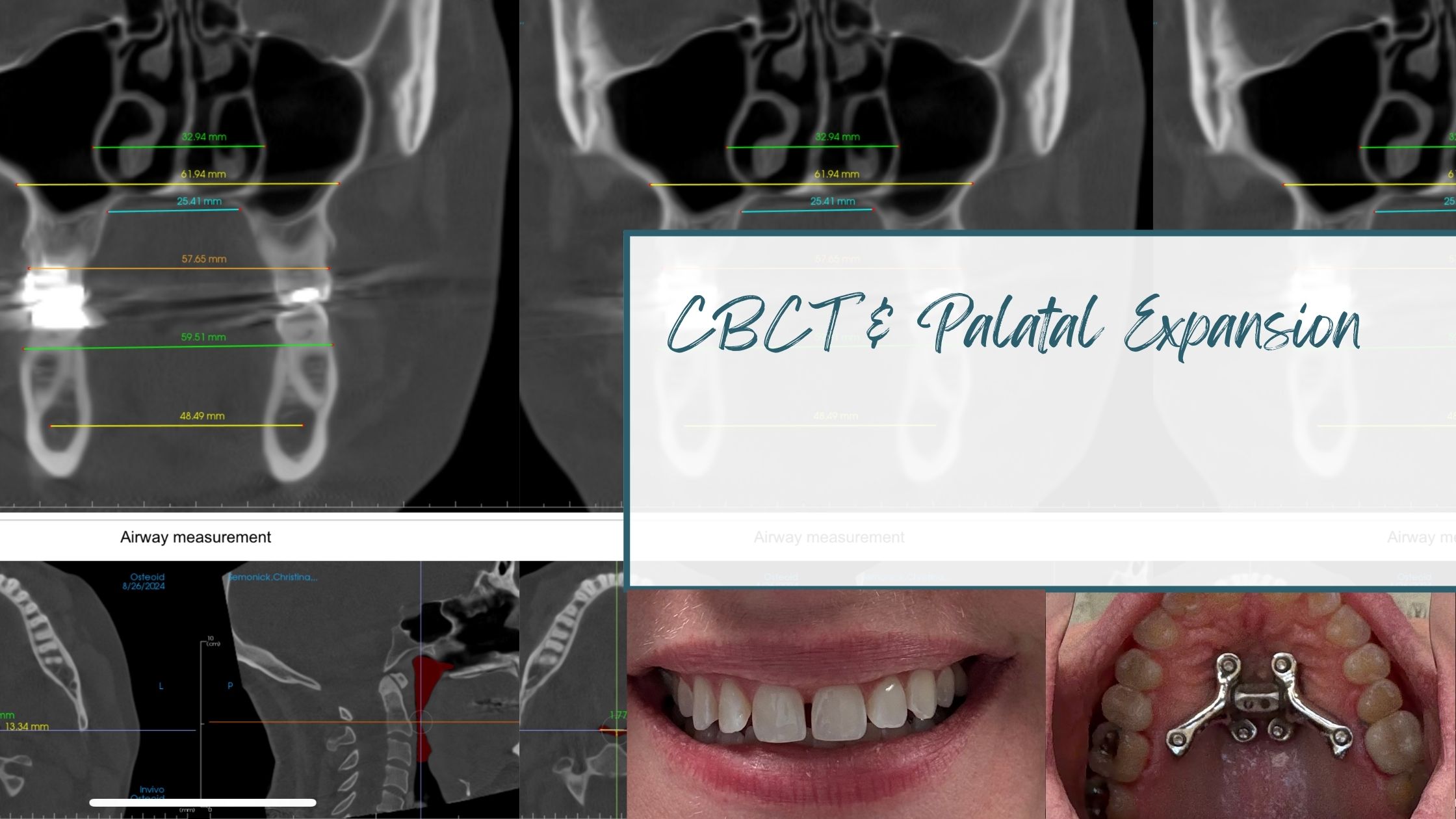
I could tell that my airway was still not ideal. While my sleep has improved significantly, and my latest sleep study was relatively unremarkable, my daily quality of life is still affected by my nasal congestion. I had a CBCT scan (which imaged my upper airway).
I knew I had a high palate. The question was IF it was a contributing factor. Upon seeing the images, it was clear that I needed palatal expansion to increase the space in my nasal cavity. I left the scan and immediately called an orthodontist.
We could also see on the CBCT that I will likely need jaw advancement surgery to increase my pharyngeal airway (front-back dimension). I'm not there yet and would like to explore all less invasive options first.
I am now in the midst of expansion. My current goal is to reduce my allergy symptoms and the number of medications needed to control them. Now, two months in, I've noticed a significant difference in my congestion, and I'm already starting to taper off my medication. I am so glad I took this step.
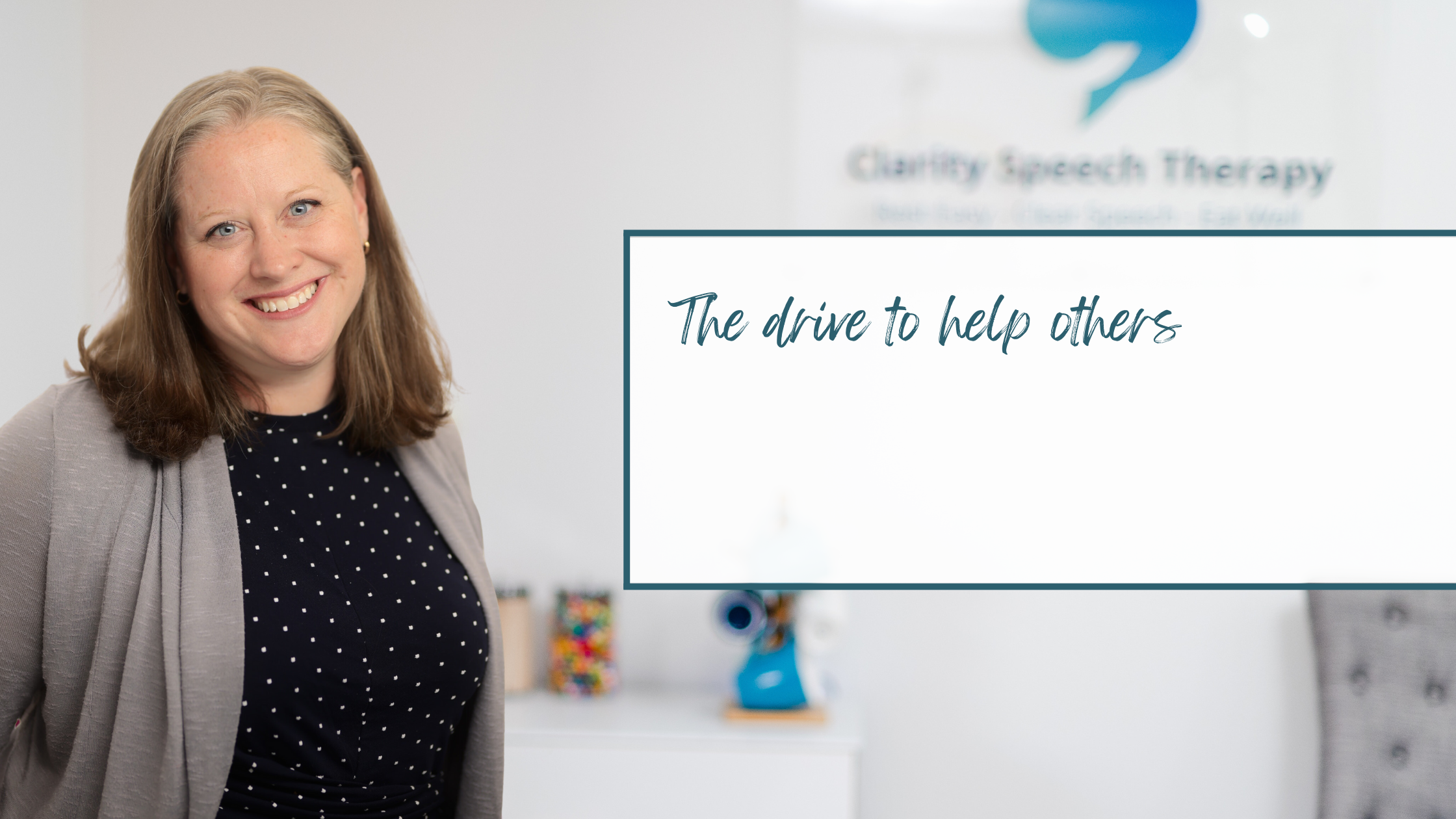
While I have had a setback with long COVID, I am happy to say that I am healthier than ever! I continue active allergy shots, focus on my oral postures, and am researching every day about how to best support my Ehlers-Danlos syndrome. Know that every exercise you may complete in therapy has been carefully selected and first tested on me. I am still learning more and will continue to inform my approach to care with the latest evidence and best practices.
My purpose in sharing my journey is to demonstrate that I am completely invested in finding the ideal providers; I am using them myself. I also set aside a significant portion of my time to read new research and attend professional development.
I also want to acknowledge that I am biased. Airway and sleep have impacted my life more than I ever thought possible. This bias naturally influences how I approach care. I look holistically before starting assessment and treatment and may ask you questions that you may not have anticipated in a speech and swallowing evaluation. I want to ensure that we have fully captured what makes you, you!
I am grateful for the privileges in my life that have enabled me to do so, including financial support and medical literacy. There were many times when insurance did not cover the services I needed or when my primary care providers completely brushed me off. I needed to fight, take out loans, and read countless research articles to achieve wellness. I now do my best to help you become your own best health advocate.
Christina

